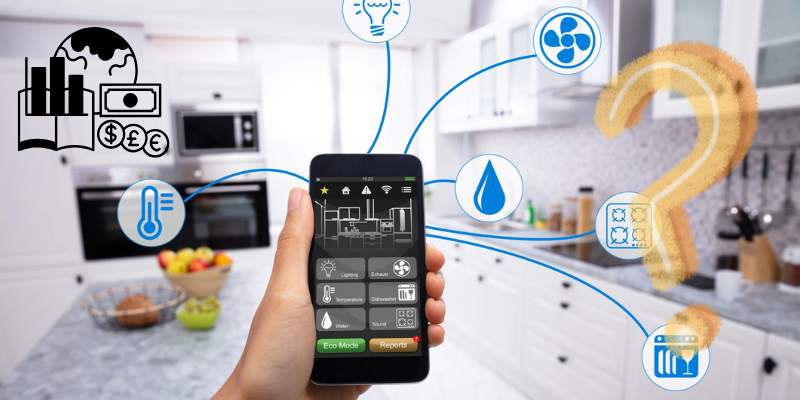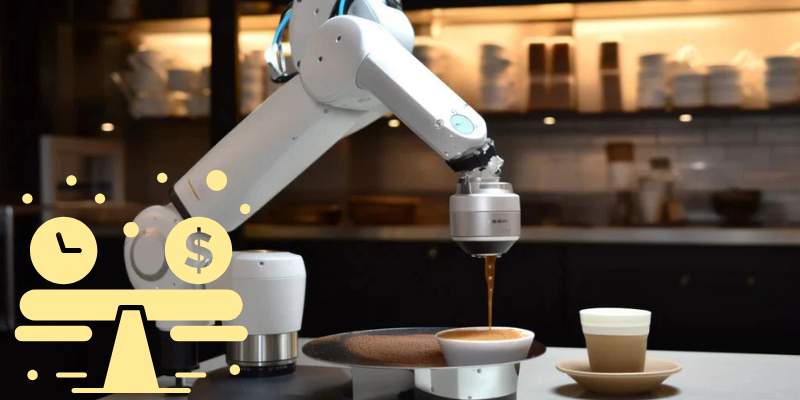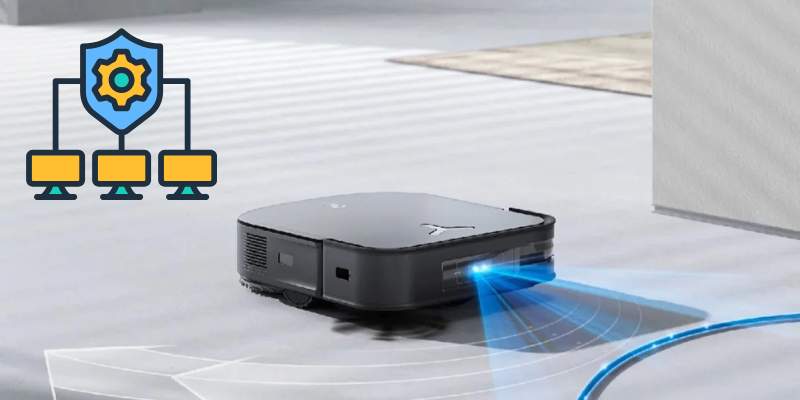Most of us don’t think twice about flipping on the coffee maker, adjusting the thermostat, or asking Alexa to play a favorite song. It feels harmless, almost trivial.
But here’s the thing—those small, everyday interactions are quietly building a profile of you that’s worth more than you probably realize.
Smart homes promise comfort, efficiency, and convenience. And honestly, some of that is fantastic.
I love walking into a room and having the lights adjust automatically, or asking my vacuum to clean while I’m out. But tucked behind the convenience is something harder to ignore: a hidden economy of data.
The question we should be asking is simple: what do your appliances really know about you—and who benefits from that knowledge?
How Smart Appliances Collect Data
Let’s start with the basics.
Every smart appliance, from your fridge to your dishwasher, comes equipped with sensors. These track usage patterns, settings, timings, and sometimes even more sensitive information.
Pair that with connectivity (Wi-Fi, Bluetooth, or even cellular), and suddenly your kitchen and living room are streaming constant updates about your life.
Examples:
- Smart refrigerators: Track when the door is opened, what foods are stored, expiration dates, and in some cases, images of your shelves.
- Dishwashers: Record load sizes, cycles, and detergent usage.
- Washing machines: Monitor water consumption, cycles per week, and preferred temperatures.
- Thermostats: Learn when you’re home, asleep, or away.
- Voice assistants: Record requests, often retaining transcripts and sometimes audio clips.
It doesn’t take much imagination to see how this information can be pieced together into a very intimate picture of your lifestyle.
The Value of Data: Why Companies Want It
So why collect all this? Because data is money.
According to a report by McKinsey, the global market for consumer data is projected to exceed $400 billion by 2030.
That’s not a typo. Your habits—how often you run the dishwasher, when you brew coffee, what temperature you like your bedroom—are valuable to advertisers, manufacturers, and third-party data brokers.
It’s not just about ads, either. Companies use this data to:
- Develop new products based on real-world usage.
- Adjust pricing models (think subscription detergents tied to your washing machine).
- Partner with retailers for targeted marketing.
Which brings us back to you: should your choice to run a quick cycle after dinner also serve as a datapoint in someone’s corporate spreadsheet?
The Emotional Side: Feeling Watched in Your Own Home
I’ll admit it. The first time I realized my smart TV was logging not only what I watched but when I watched, I felt uneasy. Home is supposed to be the one place where you can fully exhale, where no one’s looking over your shoulder.
But with smart appliances, that boundary is blurred. It can feel like being observed—even if the observer is a cloud server, not a person. That shift, from private space to monitored space, changes the emotional relationship we have with our homes.
And honestly? It makes me question where the line should be.
Privacy Concerns: Side Could Your Appliances Betray You?
This isn’t paranoia; there are documented cases.
In 2019, a report revealed that Amazon workers sometimes listened to Alexa recordings to “improve” the service. It wasn’t malicious, but it raised big questions about privacy.
Similarly, robotic vacuums have captured images of homes—including personal details—that were later leaked online during testing.
So yes, side could your vacuum, oven, or speaker inadvertently reveal things you’d rather keep private. The risk isn’t abstract—it’s real.
The Subtlety of Behavioral Data
It’s not just obvious information like what you eat or when you sleep. Behavioral data can be even more revealing.
- Running the washing machine at midnight could suggest shift work.
- Frequent use of the dishwasher might reveal a large family.
- Thermostat settings could imply income level (heating and cooling aren’t cheap).
When stitched together, these small details form a surprisingly accurate profile. And once that profile exists, it can be sold, analyzed, and used in ways you may never know about.
The Trade-Off: Convenience vs. Control
Now, I don’t want to ignore the upside. Smart appliances genuinely make life easier.
- A thermostat that learns your habits can save you hundreds a year in energy bills.
- A fridge that tracks food can cut waste.
- A dishwasher that optimizes water use contributes to sustainability.
These are real benefits. They improve we indoors? Absolutely. But the trade-off is that to gain those improvements, we give up slices of control and privacy.
And that balance—between convenience and control—is one each of us has to evaluate.
The Hidden Economy in Action
Let’s take an example: smart dishwashers.
Most people think of them as appliances, plain and simple. But manufacturers see them as data generators. Usage patterns reveal not only how often people cook at home but also preferred meal times, household size, and even brand loyalty.
That’s from redefining dishwashers how companies view their products. They’re no longer just machines that clean plates; they’re portals into consumer behavior.
And once companies realize this, it shifts their focus. The appliance isn’t the end goal—the data is.
Regulation: Playing Catch-Up
Here’s the problem: laws haven’t kept pace.
In the U.S., there’s no comprehensive federal data privacy law. The EU’s GDPR sets stricter rules, but even those are hard to enforce across borders. Meanwhile, smart appliances keep shipping, collecting, and transmitting data at unprecedented levels.
According to Pew Research, 79% of Americans are concerned about how companies use their personal data. Yet most still buy and use smart devices. Why? Because the convenience outweighs the concern—at least in the moment.
Emotional Nuance: Trust and Fatigue
There’s another layer: fatigue.
Most of us already juggle too many passwords, too many notifications, too many privacy pop-ups. Adding appliances to the list can feel exhausting. Do I really want to manage security settings on my toaster?
At some point, trust becomes a shortcut. We click “agree” just to get the machine working. And that surrender—though understandable—is what fuels the hidden data economy.
Solutions: What Can We Do?
So where does that leave us?
Practical steps:
- Check settings: Most smart appliances have privacy controls. They’re buried, but they exist.
- Local storage: Favor devices that store data locally instead of uploading everything.
- Limit integration: The more devices connected, the bigger the privacy net.
- Demand transparency: Pressure manufacturers for clear policies on data use.
None of these are perfect. But they’re small ways to reclaim a little control.
Personal Reflection: Do We Need All This?
Here’s my honest take.
I love technology. I don’t want to go back to a world without smart thermostats or voice assistants. But I also feel a twinge of sadness that home—once the most private place—now doubles as a marketplace for my habits.
When I think about my grandmother’s house, I remember quiet appliances that did their job and nothing more. There’s a certain peace in that. Today, every beep and push notification feels like a reminder that I’m being watched, measured, analyzed.
So while I won’t give up my smart gadgets entirely, I’m more cautious now. And I think caution is the healthiest stance we can take.
Conclusion: The Duality of Smart Living
The hidden data economy is real. Can appliances make our lives easier? Absolutely. But they also come with strings attached—strings tied to profit motives and privacy trade-offs.
As we keep adopting smarter kitchens, living rooms, and bedrooms, we have to ask ourselves: what are we really giving away in exchange for convenience?
Maybe the answer isn’t to stop using these devices but to demand a fairer deal. Clearer rules. Stronger protections. And a recognition that our homes should be sanctuaries first, data factories second.
Because in the end, smart living isn’t just about technology. It’s about trust. And trust has to be earned.


